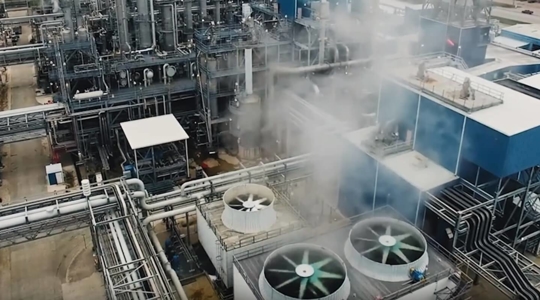Common Causes of Electrical & Chemical Plant Fires
Hazardous chemicals are frequently the cause of fires at chemical plants. While dangerous chemicals are an ignition risk on their own, when these chemicals are used with heavy machinery or other hazards, their threat-levels increase exponentially.
Chemical plant fires are caused by the following:
When a company fails to maintain its machines, combustible materials can ignite. Additionally, when corporations fail to train their employees, workers can make simple mistakes that result in grave consequences. Every employer must adequately instruct their employees to ensure that chemical fires do not occur. When employers provide inadequate training, they could be held liable for the ensuing disaster.
Common Injuries from Chemical Plant Fires
Chemical plant accidents can inflict more than a typical burn wound. In fact, there are thousands of chemical mixtures used in various industries, and how each of these interacts with heat will look different. Chemical plant fires can cause numerous injuries that many people do not account for when they take a job at a production plant.
- Burns to the lining of the lungs
- Respiratory issues
- Persistent eye irritation
- Blurry vision
- Headaches due to smoke inhalation
- Nausea from smoke complications
- Burned esophagus
- Burn injuries
As you can see, some of these injuries are external, and some are internal. Internal injuries are often more dangerous because the injured worker may not realize they've been wounded. A worker with headaches, nausea, and respiratory issues after a chemical fire may disregard symptoms of internal injury.
- Lightheadedness
- Throwing up
- Coughing
- Wheezing
- Constant smell of smoke
- Watery eyes
- Stinging throat or lungs
- Difficulty inhaling
When someone is near a chemical fire, the smoke may coat his or her lungs. This “chemical coating” can block the lungs from receiving and breaking down oxygen. In fact, it can cause scarring in and around the tiny air sacs of the lungs. While a severe consequence of chemical fires, the symptoms of lung scarring as a result of the chemical coating may not be felt for some time. Due to chemical coatings and other problems, going in for a routine respiratory checkup is a good idea to make sure that you have not suffered internal damage from a chemical fire.
The ITC Deer Park Plant Fire
On March 17, 2019, Intercontinental Terminals Company’s (ITC) Deer Park plant caught fire. The Deer Park facility stores a variety of petrochemical liquids and gases as well as various types of fuel, bunker oil, and distillates. As the hazardous chemicals sent plumes of thick black smoke into the air, ITC officials projected that the fire could burn for 2 days, but it continued burning for more than 60 hours. Then, just as crews were gaining control over the flames, it broke through a containment wall and caused another fire. This blaze sent chemical waste into waterways that feed into the ship channel. Over 1,000 federal, state, and local workers, as well as the U.S. Coast Guard, responded to clean up the oil and sludge that spilled into the water because of the fire.
While crews are still assessing the damage to the environment and the health of the community, Harris County officials have already agreed to sue ITC for failing to prevent the massive chemical fire. Some estimates place the financial damage caused to the area’s petrochemical industry at a staggering $1 billion. Officials from the county know that this was a serious accident and are already acting to hold ITC accountable for negligent behavior.
Likewise, if you believe that you may be suffering from symptoms caused by the toxic fire, contact our ITC Deer Park plant fire lawyers today. Arnold & Itkin’s lawyers have won billions for clients and are ready to help you fight for the compensation of any medical bills, lost wages, and other damages caused by this frightening event.
Contact Our Chemical Fire Lawyers for a Free Consultation: (888) 493-1629
If you were injured in a chemical fire while reporting at work, it is probable that your employer is directly or indirectly to blame. Seek a claim against their negligence with the help of a chemical fire attorney from Arnold & Itkin. Our firm has helped thousands of clients who were harmed in chemical plant accidents; in fact, our firm has won billions of dollars for our clientele. Call today to learn how we can help you pursue the best results.
Call (888) 493-1629 or contact our chemical plant fire lawyers online for a free case evaluation. We're ready to listen and help.
